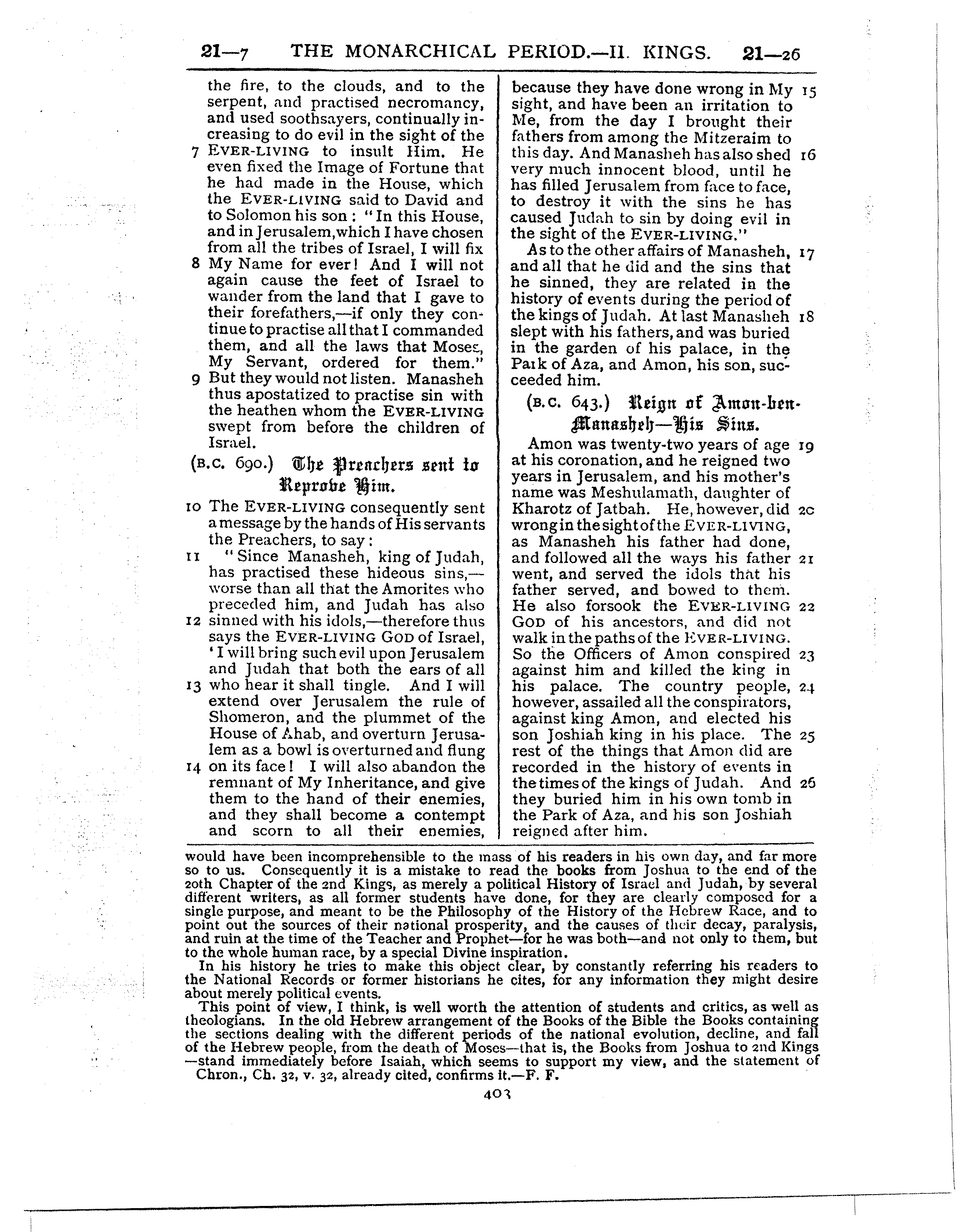II Kings - Ferrar Fenton Bible Translation page 403
The History of the People of Israel
and all that he did and the sins that he sinned, they are related in the history of events during the period of the kings of judah. At last Manasheh slept with his fathers, and was buried in the garden of his palace, in the Park of Aza, and Amon, his son, suc- ceeded him. 16 18 (ac. 643.) ilizigxz ¤f 3iu¤u·ln:xr· £la¤asb2I;———@is Sins. Amon was twenty—two years of age
at his coronation, and he reigned two years in jerusalem, and his mother’s name was Meshulamath, daughter of Kharotz of jatbah. He, however, did wrongin the sightof the l3v1:1z-Livme, as Manasheh his father had done, and followed all the ways his father went, and served the idols that his father served, and bowed to them. He also forsook the EVER-L1vING GOD of his ancestors, and did not walkin the paths of the livna-Lrvmo. So the Officers of Amon conspired against him and killed the king in his palace. The country people, however, assailed all the conspirators, against king Amon, and elected his son joshiah king in his place. The rest of the things that Amon did are recorded in the history of events in thetimes of the kings of jutlah. And they buried him in his own tomb in the Park of Aza, and his son joshiah reigned after him. 20 21 22 26
would have been incomprehensible to the mass of his readers in his own day, and far more so to us. Consequently it is a mistake to read the books from joshua to the end of the 20th Chapter of the and Kings, as merely a political History of Israel and judah, by several different writers, as all former students have done, for they are clearly composed for a single purpose, and meant to be the Philosophy of the History of the Hebrew Race, and to point out the sources of their national prosperity, and the causes of their decay, paralysis, and ruin at the time of the Teacher and Prophet·-for he was both--and not only to them, but to the whole human race, by a special Divine inspiration. In his history he tries to make this object clear, by constantly referring his readers to
the National Records or former historians he cites, for any information they might desire about merely political events. This point of view, I think, is well worth the attention of students and critics, as well as heoloians. In the old Heb f the Books of the Bible the Boo tgrew arrangement oks containing the sections dealing with the different periods of the national evolution, decline, and fal of the Hebrew people, from the death of Moses-—that is, the Books from joshua to 2nd Kings stand immediately before Isaiah, which seems to support my view, and the statement of Chron., Ch. 32, v. 32, already cited, confirms it.··—F. F. 402
